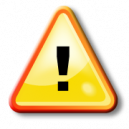Thinking Strategies- Tools of the Trade
The following thinking strategies are the essential ingredients to proficient reading. When proficient readers read, they are being metacognitive. This simply means they are "thinking about their thinking". The reader is not only calling the words but is also doing one or more of the following thinking strategies. As you read your own text, try to catch yourself being metacognitive.
"When the mind is thinking it is talking to itself." - Plato, philosopher
"Thinking is only the process of talking to yourself." - Author Unknown
*Much of my information has been gathered from 7 Keys to Comprehension by Susan Zimmerman & Chryse Hutchins and Mosaic of Thought by Ellin Oliver Keene & Susan Zimmerman.
Schema- Background Knowledge and Connections

Thoughtful readers make connections, and retrieve and activate prior knowledge before, during, and after reading.
This reminds me of __________. (person, place, thing, experience) I have heard, experienced, or read something about _____ before.
Questioning
Good readers generate questions before, during, and after reading to clarify meaning, make predictions, and focus their attention on what’s important.
I wonder_____________. I think that ______________. I predict that _________ will ___________.
Visualizing
Thoughtful readers create mental images supported by the five senses.
I can see, hear, feel, taste, touch this in my mind. I can feel what the character is feeling. (emotion)
Inferring
Thoughtful readers use their prior knowledge and information from what they read to make predictions, seek answers to questions, draw conclusions, and create interpretations that deepen their understanding of the text.
Because __________ happened, I think that ___________ will happen.
Synthesizing

Thoughtful readers continually change their response to a text in order to get an overall meaning. (putting it all together)
I think this book is really about __________. The deeper meaning of the text as a whole. Themes, lessons, etc.
Determining Importance

Thoughtful readers sift out relevant and useful information.
I think this part will be very important to understanding this story, article, letter, textbook, etc.
Monitoring for Meaning
Good readers know when they don’t understand the text they are reading. (when it doesn’t make sense, what doesn’t make sense, and whether the unclear portions are relevant to overall understanding of the topic)
I am not sure what I just read. It is not making sense in my head so I need to reread. OR I don't know what that word is (or paragraph is about) but I don' t think it interferes with my understanding of the story or text as a whole.
